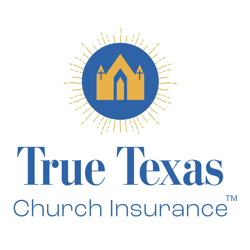Fred is an elder at his church in Amarillo and was tasked with reviewing the insurance coverage for the church’s staff. He’d never dealt with insurance in this capacity before, and as he sifted through policy details he felt more and more confused. One thing he couldn't immediately find in the policy documents was whether or not they had workers compensation insurance for the church.
Fred knew that workers compensation coverage wasn't required for churches in Texas. But with several staff members on the payroll, Fred wanted to make sure the church was properly protected in spite of Texas law having its own set of rules. After talking to his fellow board members, it became clear that Fred wasn’t alone in his confusion of whether or not they had a workers compensation policy.
Many Texas church leaders are not familiar with whether workers' compensation is necessary or if their church operates without it. Even though the legal requirements allowed the church to go without it, Fred wondered if skipping this coverage was wise. He began looking into what workers' compensation actually provides and why it might be more valuable than he first thought. Fred's journey allowed him to discover what workers compensation does and how it can benefit Texas churches.
Workers Compensation Insurance Isn’t Legally Required for Texas Churches
One of the first things Fred learned in his research was that, unlike in most other states, Texas doesn’t require private employers—including churches—to carry workers compensation insurance coverage. Initially, this can seem like a relief to someone like Fred looking at what insurance costs today. After all, it was one less liability insurance policy to worry about, and the church could save money on premium costs by not having to purchase it. However, as Fred dug deeper, he started to realize that just because something isn’t required doesn’t mean it’s unnecessary. Texas may offer flexibility, but that doesn’t mean churches are immune to the additional risks that workers' compensation helps mitigate.
Fred soon learned that without workers' comp, if a staff member was injured on the job, the church would be responsible for covering medical bills, rehabilitation costs, and potentially lost wages. Even worse, if an employee decided to sue, the church could face expensive legal obligations that could drain resources meant for ministry work. Although Texas law doesn’t mandate workers' comp, Fred realized that choosing to go without it would leave the church financially vulnerable due to the legal liability of providing for employees when an accident occurs. With advice from an experienced church insurance specialist, Fred came to understand that having workers compensation was about safeguarding the future of the church and its people with financial protection.
Workers' Comp Covers Work-Related Injuries
As Fred learned more, he realized that workers comp insurance provides protection for job injuries or illnesses that come from work-related activities. Whether a church employee gets injured while preparing for an event, setting up chairs, or even driving to a church-sponsored activity, workers comp covers medical expenses and lost wages related to these injuries.
For Fred’s church, this was particularly important. Their staff often performed manual tasks that carried a risk of bodily injury, and they frequently traveled for outreach events. Without workers compensation, any accidents or injuries that occurred during these activities could leave the church scrambling to cover costs of medical care and lost wages.
What stood out most to Fred was the peace of mind that workers' compensation offered. If a staff member was hurt on the job, the church wouldn’t have to bear the full burden of medical costs or deal with the stress of legal disputes. Workers' comp would cover those expenses and allow the church to focus on supporting the injured employee’s recovery. The other big piece is that the church could not be sued for extra damages for workers compensation claims as long as they were not deemed negligent. Fred now understood that workers' comp wasn’t just another policy—it was an essential layer of protection for the church and its employees.

Protection for Both Staff and the Church
Fred quickly saw that workers' compensation was a two-way protection: it safeguarded both the staff and the church itself. On one hand, it ensured that the church’s employees wouldn’t be left out in the cold if they were injured while working. But on the other hand, it also shielded the church from legal liability that could arise if a staff member sought legal action through lawsuits due to workplace injuries. For a church, this kind of legal risk can be financially crippling, especially for smaller congregations that rely on limited budgets.
Without workers' comp, a single injury could lead to lawsuits that could lead to legal obligations that can drain church resources and create a lasting financial burden. Fred realized that by investing a meager additional premium in this coverage, he could protect the church from the unpredictable costs associated with medical bills and legal fees. Working with a church insurance specialist, Fred came to appreciate the dual protection that workers' comp offered, not only securing the financial stability of the church but also caring for the wellbeing of its staff.
One surprising fact Fred discovered was that workers compensation typically doesn’t cover volunteers. In his church, volunteers played an integral role in many activities, from setting up events to helping with maintenance. Fred was concerned that these important members of the congregation wouldn’t have the same protection as the employees if they were injured while helping out. But he also understood that church insurance policies do have limitations and exclusions on what they cover.
Workers' Comp Is Different from Health Insurance
One of Fred’s initial thoughts was whether the church’s health insurance plan would cover workplace injuries, but he soon found out that workers' compensation and health insurance are completely different. While health insurance covers personal medical needs like routine checkups, workers' compensation focuses specifically on injuries or illnesses that occur while an employee is performing their job duties. If a staff member was injured while working around the church premises, leading an event, or even driving a church vehicle, health insurance wouldn’t cover those costs—workers' compensation would. And it could even cover for income while the employee can't work.
Fred now saw the importance of having both types of insurance. Health insurance was essential for covering everyday medical expenses, but workers' comp was needed to address injuries or illnesses that happen on the job. As he worked with his church insurance agent, Fred realized that understanding this distinction was key to providing complete coverage for the church’s staff. This comprehensive approach would protect the church from any gaps in coverage that could otherwise lead to significant financial strain.
Customized Solutions with True Texas Church Insurance
By the time Fred finished exploring workers' compensation, he realized that while it wasn’t required by law, it was a necessary investment to protect both his staff and his church. From covering workplace injuries to shielding the church from lawsuits, workers' comp offered the protection that Fred’s congregation needed to operate with peace of mind.
Fred was ultimately glad that he had reached out to Insurance For Texans for help with understanding the liability coverage for his church in Amarillo. If your church is facing similar questions, True Texas Church Insurance, offered exclusively through Insurance For Texans, can provide the customized solutions your ministry needs.
Click the button below to get started with True Texas Church Insurance and secure the right coverage for your church. Let us help you find the protection you need to keep your ministry thriving.



